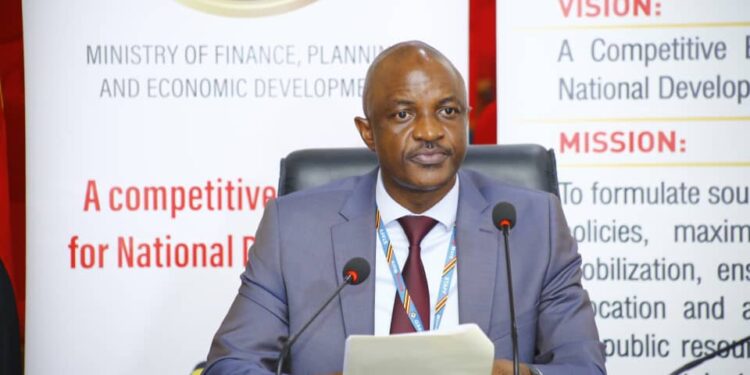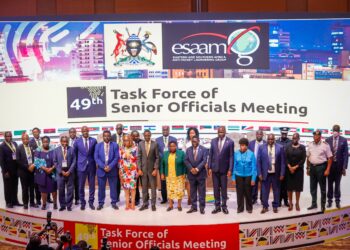For years, Uganda has relied on donor funding to support critical sectors such as health and education.
However, recent directives from the President of the United States of America (POTUS) Donald John Trump stopping USAID funding have prompted the government to rethink its strategies and build a more self-reliant economy.
Speaking on UBC’s talk show ON Wednesday Night, the Permanent Secretary and Secretary to the Treasury (PSST), Ramathan Ggoobi, underscored Uganda’s proactive approach in anticipating and mitigating the gaps created by reduced donor support. He highlighted key interventions aimed at ensuring economic sustainability and resilience in the face of changing financial dynamics.
Ggoobi acknowledged the historical significance of development partners, particularly the United States, in financing Uganda’s social sectors. However, he emphasized that the government had foreseen potential reductions in external support and had taken steps to lessen dependence on foreign aid. A notable example is the government’s increasing budget allocation for life-saving medicines, such as antiretroviral (ARV) drugs, which now stand at approximately UGX 200 billion.
“We are now at about 200 billion shillings, and we have zero impact if, for example, that support was stopped,” Ggoobi asserted. He reassured the public that while donor support for essential medicines remains in place, the government remains cautious and prepared for any eventualities in other sectors.
One of Uganda’s key strategies in mitigating the effects of reduced donor funding has been strengthening local production. Ggoobi highlighted the country’s capacity to manufacture essential medical supplies, noting that Uganda now produces its own ARVs, significantly reducing import dependency.
“These ARVs we are talking about are produced in Uganda. We are not importing them. They are produced here,” he stated, emphasizing the importance of investing in homegrown scientific innovation. “Now imagine if you did not have them!”
Beyond ARVs, Uganda is also producing and exporting key medical commodities such as malaria and HIV testing kits. “ That’s why we are supporting the professors and others to do the research and then support the entrepreneurs to go to multiply these into commercial enterprises, the testing kits, all these testing kits for malaria, for HIV, are produced by our young people, not very far here in Niinda, and we are supporting them as government, giving them tax rebates, giving them money to invest people, getting them connected to markets here an
Ggoobi outlined a broader vision for economic sustainability, focusing on value addition and selective import substitution. He cautioned against arbitrary import bans and instead advocated for strategic interventions that enhance local production.
“It is not about blind import substitution strategies that do not work, but being purposeful and strategic,” he explained. The government is particularly targeting sectors like agro-processing, construction materials, and pharmaceuticals, which align with Uganda’s economic strengths and reduce the high logistical costs associated with being a landlocked country.
Additionally, investments in research and innovation remain a priority. “We are supporting scientists to produce vaccines. Some may not see the importance now, but in the future, this investment will yield critical results,” Ggoobi remarked.
He reiterated Uganda’s ability to withstand economic shocks, crediting the country’s resilience and adaptive policies. “It’s not good manners to be shocked or to shock others, but shocking Uganda is also not very easy because we are a very resilient country,” he stated.
According to Ggoobi, as donor priorities shift, Uganda’s commitment to self-sufficiency is evident in its strategic investments in local industries, research, and innovation. The government’s foresight in predicting these changes and implementing mitigation strategies has positioned the country on a sustainable growth trajectory, ensuring long-term economic stability and reduced dependence on foreign aid.
Do you have a story in your community or an opinion to share with us: Email us at editorial@watchdoguganda.com













